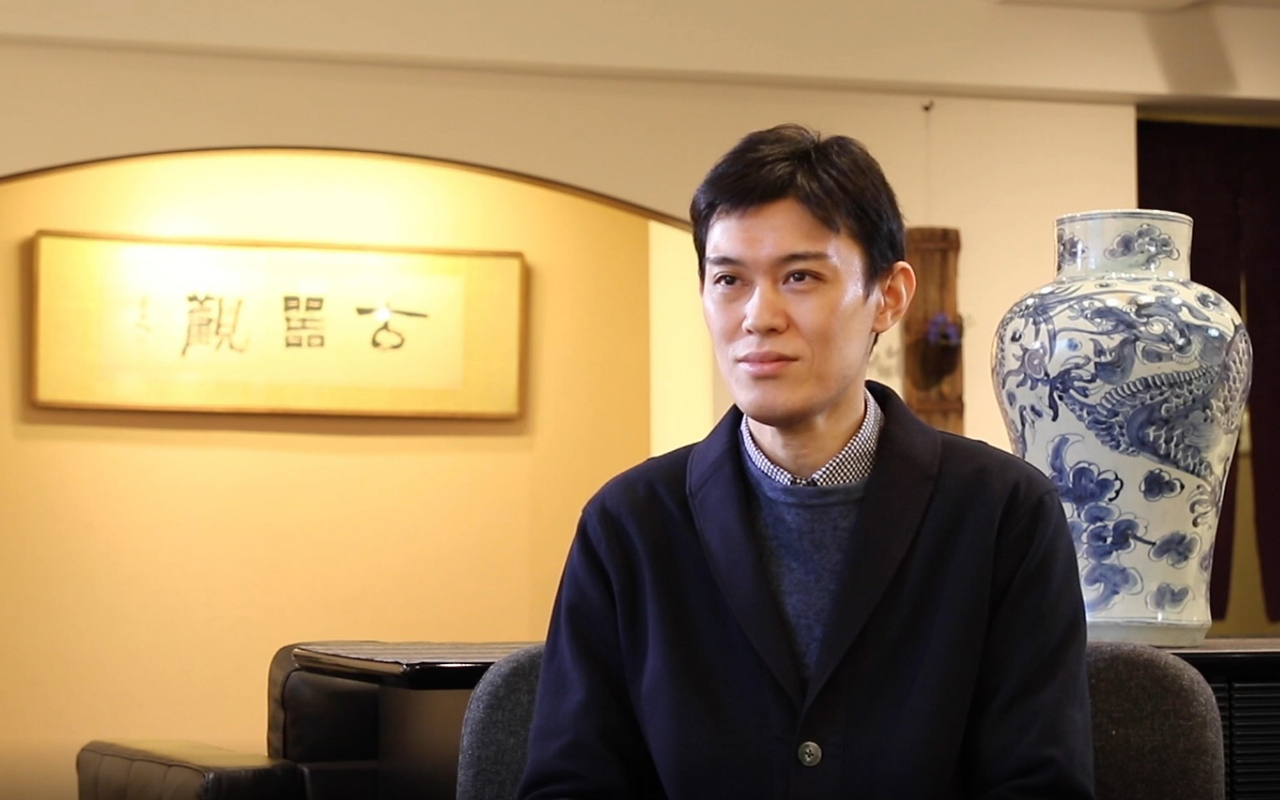The Beginnings of The Career
- QHow did you get started in the antique art business.
- AMy family was an antique art dealer. I was born when my father was of advanced aged. Growing up, I saw how his age affected him, and wanted to support him as much as possible, which is why I decided to become an antique art dealer.
- QHow old were you when you started helping him. How did you feel about it when you did.
- AI was 19. My feelings at the time were unfocused, and I honestly was not thinking much.
- QWhat training did you receive from your father. What is something he did that sticks with you.
- AThe first two things I learned from my father were the rules of the industry and how to handle artwork. I also learned other things, like to serve customers, which I learned by watching him at work. What sticks with me is his mental strength. He had a really stable personality with no ups and downs, and he dealt with everything calmly, which gave me an indescribable sense of security.
- QWhat do you do to develop a solid aesthetic sense.
- AIt is important to hold different pieces in your hands. If you think one is good, actually get it and try to display and use it around you. Masterpieces have their own unique atmospheres. The ability to judge the authenticity of a piece comes naturally as you gain more experience in handling pieces with solid histories.
- QWhat do you watch for when purchasing pieces from auctions.
- AI try to acquire pieces that strike me on an instinctual level. Larger auctions in Japan take place over a number of days, usually with thousands of items on offer. You only get to choose a select few. That’s why I concentrate especially hard during auctions. Even if I don’t get a chance to make a purchase, I believe that the challenge of trying will lead to further strength down the road in my career as a dealer.
- QWhat do you love most about the job.
- AI feel especially happy when I acquire a piece that captures my attention. I am also very happy when I can share my feelings about my pieces with my customers. The world is becoming ever more convenient and rational, and I like to provide my customers with works with true beauty, and that show the richness of human experience.
About TENPYODO
- QWhen was your business established.
- AIt was in 1976.
- QWhere does the name “TENPYODO” come from.
- AIt is the name my father gave it. He must have had a love for Tenpyo culture from the Nara period, when was maturing. His brother dealt in art as well, and he worked with the name HAKUHODO, named after Hakuho culture, which was from the Asuka period, before Tenpyo existed. I think the two got along very well.
- QWhat do you specialize in in the world of antique art.
- AI specialize in antique Kyushu ceramics. I also handle a variety of modern craft pieces and tea ceremony pieces.
- QWhy did you choose to work out of Fukuoka/Hakata.
- AFukuoka is the largest city in the Kyushu area, and I’ve always been drawn to it. My father had the store in Kitakyushu. When relocating, I thought about moving to Tokyo, but in the end I chose Fukuoka(Hakata)because I was born here. My specialty is antique Kyushu ceramics, and I would like to continue my business in my hometown.
- QI heard you have a lot of clients from abroad. What do you pay particular attention to when communicating with them.
- AThere is always a language barrier when getting in touch with them. Nuances in the way we express ourselves differ due to differences in lifestyle. I always try to remember that I need to be considerate of the person as well as the language.
- QDo you have any advice regarding thinking about or feeling art.
- AI think you should visit as many museums and events as you can and genuinely enjoy looking at art. The satisfaction you get from seeing art or acquiring something of high value enriches the mind. I believe that experiences like this form a good biorhythm in your life. Having art that you like around you adds color to your life. A truly good piece of art has a kind of special dignity to it.
- QWhat kind of presence do you want to be for your clients.
- AAntique art dealers are chosen by their clientele. They must always have a professional, discerning eye. We need to give our all in providing clients with pieces with true value. I would also like to be a shop that can maintain natural relationships with a wide variety of clients with an interest in art.




